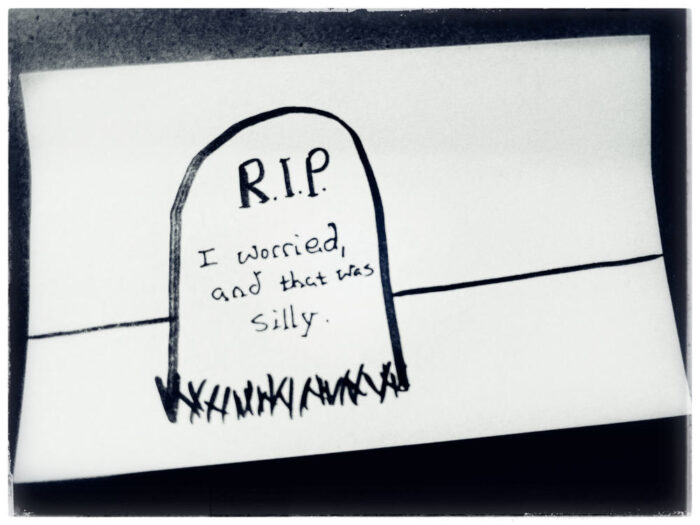I’ve been trying to think of what, exactly, it is about Dorothy Parker’s writing that I like so much. I touched on it briefly yesterday when I wrote about a New Yorker style of writing, but I think there’s more to it. These things can often be indescribable, however, so you’ll have to take this with a grain of salt.
First of all, I think I read from the perspective of a writer. I’m not as interested in character and plot as I am in how the author presents those things. (This is largely why I never mind spoilers — knowing the end makes the journey more satisfying to me.)
One question I always ask myself when I’m reading is this: “If I were writing this same story, is this how I would approach it?” When the answer is “yes,” I feel a quirky sense of camaraderie with the author, as if we’re reaching across great gulfs of time and space to give each other a spectral high-five. “I see what you did there!” I say to them. “You and I are on the same wavelength!”
Dorothy Parker starts stories the way I start stories, she writes dialogue the way I try to, and all of her endings are satisfying. I feel like a baseball enthusiast watching a pitcher completing a perfect game. I know just enough to recognize how cool it is, even if I can’t accomplish the same feat myself.

While I appreciate authors whose sense of style jives with my own (like Parker, pictured above suddenly realizing the photographer was totally nude), it’s not that I can only enjoy authors who write the same way I write, or that I think those are the only good writers out there. Far from it.
To stick with the baseball metaphor, sometimes books can be more like, say, a hockey game. As a baseball enthusiast, I can appreciate the athleticism and the teamwork and the speed of a hockey match. I can even marvel at how violent everything is and how suddenly, as if by magic, teams seem to score. Hockey games can be wonderful to watch and I’m sure I’d have a great time if I went to more of them. But, no matter how good the game is, I’m still a baseball guy.
I enjoy reading Ralph Waldo Emerson, for example, but I would never write the way he does. The same thing goes for Thomas Pynchon and Gene Wolfe — they are fantastic authors that I always return to, but they have vastly different sensibilities than I have.
Dorothy Parker just plays my sport, and she does it awfully well.
(In that same metaphor, reading Salman Rushdie feels like watching a variation of Polo that was only popular in a specific region of Kashmir during the early 1970s, and I’m stuck watching the match while sitting next to a guy intent on elbowing my ribs and explaining why the whole sport is actually about religion.)

I had another observation at school today, which basically means I had an administrator sit in on my class with the sole purpose of giving me an assessment. (Huzzah!) That makes a total of … five times this year that I’ve had some sort of observation. It is unusual to have that many, and I’m not a huge fan, especially considering one of those observations was done by our district superintendent, but it’s not as if there’s a lot that I can do about it.
Some teachers point out that professional development meetings and classroom observations are the means by which administrators justify their jobs. Even though, quite frankly, I don’t know who is arguing that we should have fewer administrators. Schools need more people in nearly every position — you could double the number of admins and it wouldn’t hurt at all, as long as they were doing useful work.
More to the point of today’s evaluation: I don’t like how administrators evaluate teachers like college professors who say, “It’s impossible to get a 100% in this class.” It’s a stupid philosophy that is only ever brought up by people who are experts in their field, but not experts at teaching. (Hear that? It’s the sound of hundreds of engineering department heads mouthing, “Who, me?”)
We’re evaluated in a number of areas on a scale that goes from “Poor” to “Exemplary,” and from my understanding, nobody every gets an “exemplary” on any part of it. What I’ve been told is that “the wording of ‘exemplary’ on the rubric makes it nearly impossible to attain.”
Am I exemplary? I doubt it. But I am “proficient” enough to recognize that you shouldn’t build a rubric with unattainable levels of scoring. Because what is the point of that? It’s like not handing out a gold medal for the long jump because nobody at the Olympics can jump 50 meters.
Is it supposed to make me feel like I have room to improve? I always feel that way. Most teachers do; we don’t need a reminder. We constantly evaluate and improve our plans and strategies. That’s baked in.
Am I supposed to think that administrators are evaluating us based on faulty perceptions of what “good teaching” is because nincompoops at the department of education are forcing them to? Because that is what’s happening, and that doesn’t make anyone look good.
Anywho. I’ll probably have one more observation this year, and I’ve decided that it’s not worth worrying about. (I’ll still worry about it, of course, but I’ll feel silly for doing so. (Put something to that effect on my tombstone.))
